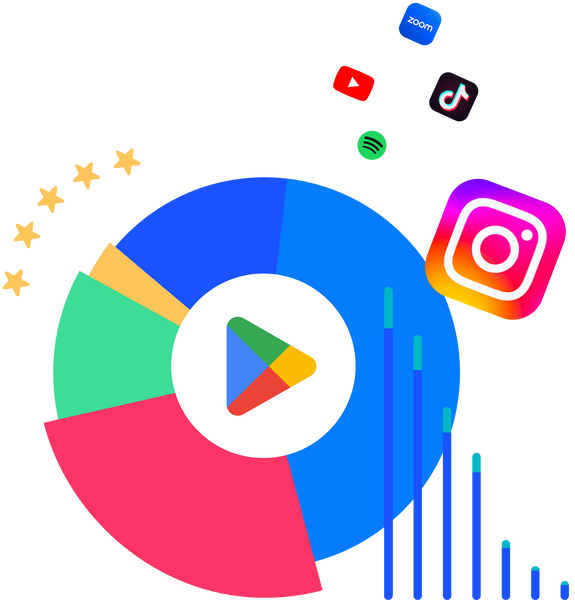The following shows the top 10 most common app permissions used by Indian mobile Apps on Google Play.
What Are the Most Common App Permissions Used by Indian Mobile Apps?
- 1st
Internet Access
android.permission.INTERNET makes it possible for app publishers to create network sockets and use custom network protocols within their apps.
99%Number of Apps86.92k+99%This permission is not required for internet connection however, as the mobile browser provides all apps with the ability to send data to the internet. 99% of the apps from Indian publishers use the Internet Access permission.
- 2nd
Network Information Access
The android.permission.ACCESS_NETWORK_STATE permission can be leveraged by app developers to enable their apps to view information about network connections.
95%Number of Apps83.92k+95%This information includes such things as which networks exist and which already have connections. 95% of the apps from Indian publishers use the Network Information Access permission.
- 3rd
Phone Sleep Mode Preventation
android.permission.WAKE_LOCK gives apps the ability to prevent the phone they are running on from going into sleep mode.
86%Number of Apps75.53k+86%This is good for apps, like YouTube, that get extended periods of engagement that do not necessarily require the user to touch the screen or otherwise interact physically with the device. 86% of the apps from Indian publishers use the Phone Sleep Mode Preventation permission.
- 4th
Write External Storage
android.permission.WRITE_EXTERNAL_STORAGE makes it possible for app developers to enable their apps to modify or delete the contents of users’ SD cards.
69%Number of Apps60.41k+69%69% of the apps from Indian publishers use the Write External Storage permission.
- 5th
Read External Storage
The android.permission.READ_EXTERNAL_STORAGE permission allows app developers to enable their apps to read the contents of user SD cards.
68%Number of Apps59.83k+68%68% of the apps from Indian publishers use the Read External Storage permission.
- 6th
Push Notification
com.google.android.c2dm.permission.RECEIVE can be used within apps to allow them to accept cloud to device messages sent by the app’s service.
68%Number of Apps59.71k+68%It should be noted however, that using this service will incur data usage, and malicious apps could cause excess data usage. 68% of the apps from Indian publishers use the Push Notification permission.
- 7th
android.permission.FOREGROUND_SERVICE
66%Number of Apps58.32k+66%66% of the apps from Indian publishers use the android.permission.FOREGROUND_SERVICE permission.
- 8th
Install Referrer
Apps often advertise other apps. By leveraging com.google.android.finsky.permission.BIND_GET_INSTALL_REFERRER_SERVICE apps can make sure that installs of other apps launched via their ads are properly attributed.
64%Number of Apps56.75k+64%64% of the apps from Indian publishers use the Install Referrer permission.
- 9th
com.google.android.gms.permission.AD_ID
62%Number of Apps54.43k+62%62% of the apps from Indian publishers use the com.google.android.gms.permission.AD_ID permission.
- 10th
android.permission.POST_NOTIFICATIONS
60%Number of Apps52.86k+60%60% of the apps from Indian publishers use the android.permission.POST_NOTIFICATIONS permission.
This chart provides a near real-time ranking of the 10 most common app permissions used by Indian mobile Apps on Google Play.
Currently, Internet Access is the most common, followed by Network Information Access, Phone Sleep Mode Preventation, Write External Storage, and Read External Storage.

Get Even More Mobile App Market Intelligence!
The 42matters Explorer enables you to browse the global app market, with insight into publisher details, app metadata, performance metrics, technical insights, and more.
Our suite of APIs, file dumps, and other app and SDK intelligence tools can help you dig even deeper, with intelligence compiled from 12 leading mobile and connected TV (CTV) app stores, including Google Play, the Apple App Store, Amazon Appstore, Huawei AppGallery, Tencent App Store, Roku, Apple TV, Fire TV, Google TV, Samsung Smart TV Apps, the LG Content Store, and Vizio SmartCast Apps.
To learn more, set up a demo with our app market experts!


